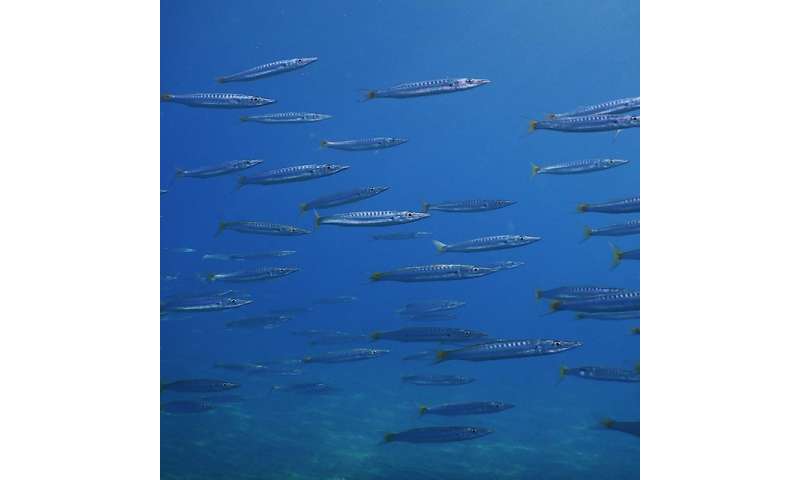#Time for total rethink on the management of alien species

“#Time for total rethink on the management of alien species”

Non-indigenous or alien species need to be appreciated for their potential benefits and not just the negative impacts they can have on the environment, according to new research.
In recent decades, there have been numerous examples of non-indigenous species (NIS) establishing a foothold and then causing harm in new environments. Meanwhile, others have had benefits for fisheries or replaced lost ecological functions.
Stopping the spread of such species is virtually impossible, so a new study—led by the University of Plymouth and the Marine and Environmental Research (MER) Lab in Cyprus—is calling for a complete rethink of how they are considered in the future.
Focused on the Mediterranean, the most ‘invaded’ sea on Earth, the research highlights species—including lionfish, clams, barracuda, rabbitfish and jellyfish—that have become resident in the region as a result of factors such as the changing climate or human introduction.
To try and address such issues, the study proposes a cost-benefit analysis which will guide whether NIS should be managed in a sustainable or unsustainable way.
Where non-indigenous species are known to have positive effects on the environment and marine economies, a series of policy reforms are proposed.
However, where there are no perceived benefits, it proposes legislation to actively promote commercial over-fishing and the creation of radical NIS-specific licences for recreational fishers. One example of such a species is the lionfish (Pterois miles), first seen in the Mediterranean Sea in 2012 but now thriving and well-established across southern Europe and having a marked impact on other native species and the wider environment.
The study also recommends investment in the market and valorisation of NIS products, the development of novel products, and fishery-related tourism.
It also highlights the importance of investing in natural-based solutions such as the protection of native predators, the enhancement of marine protected areas (MPAs), and allowing SCUBA divers to remove invasive species from MPAs.
The application of the proposed reforms would turn NIS into a source of income and nutrition, and adhere to United Nations Sustainable Development Goal 14, which calls for the conservation and sustainable use of the oceans, seas, and marine resources for sustainable development.
The full study – Kleitou et al: Fishery reforms for the management of non-indigenous species – is published in the Journal of Environmental Management.
Invasive lionfish likely to become permanent residents in the Mediterranean
Periklis Kleitou et al. Fishery reforms for the management of non-indigenous species, Journal of Environmental Management (2020). DOI: 10.1016/j.jenvman.2020.111690
Citation:
Time for total rethink on the management of alien species (2020, November 27)
retrieved 27 November 2020
from https://phys.org/news/2020-11-total-rethink-alien-species.html
This document is subject to copyright. Apart from any fair dealing for the purpose of private study or research, no
part may be reproduced without the written permission. The content is provided for information purposes only.
If you liked the article, do not forget to share it with your friends. Follow us on Google News too, click on the star and choose us from your favorites.
For forums sites go to Forum.BuradaBiliyorum.Com
If you want to read more Like this articles, you can visit our Science category.




